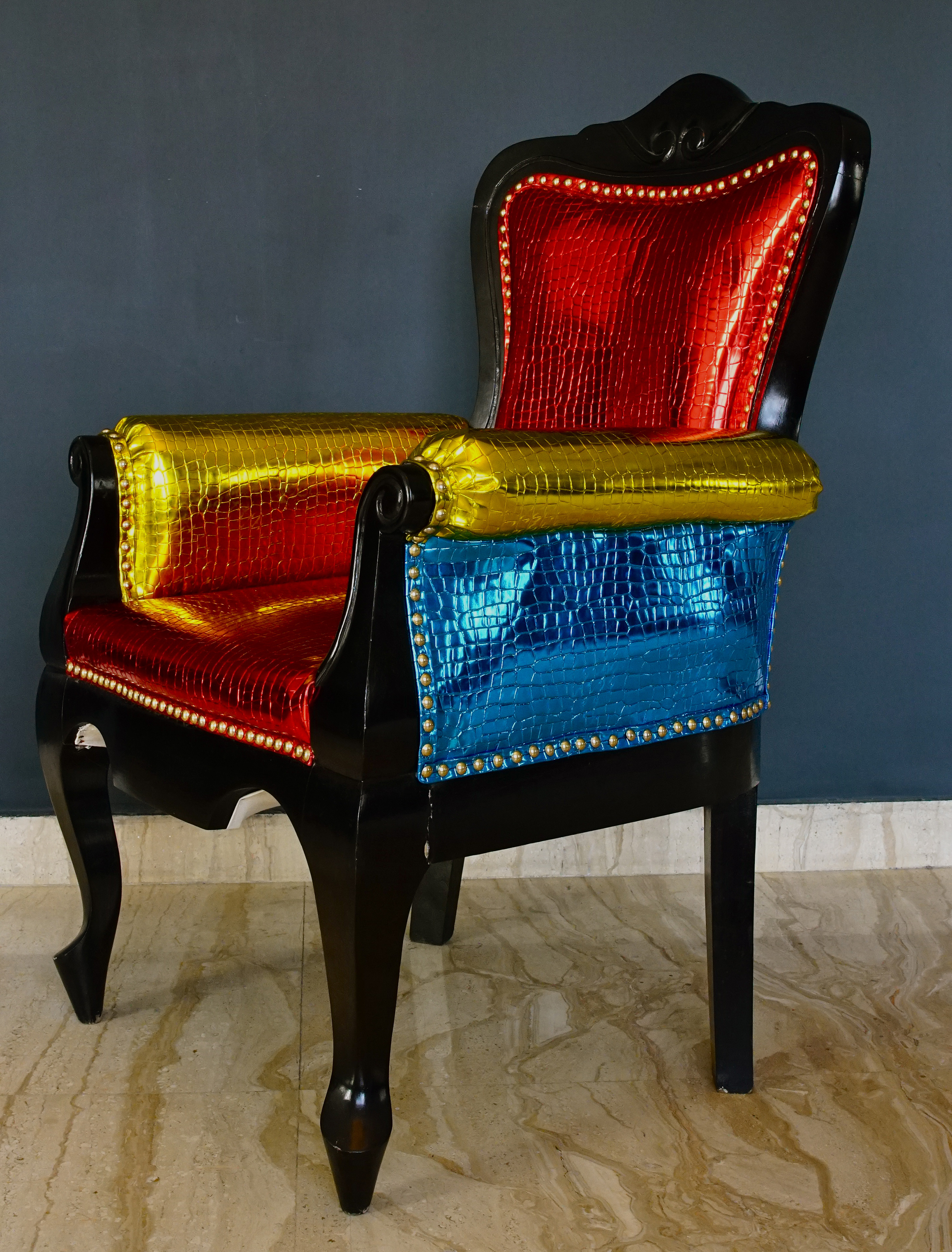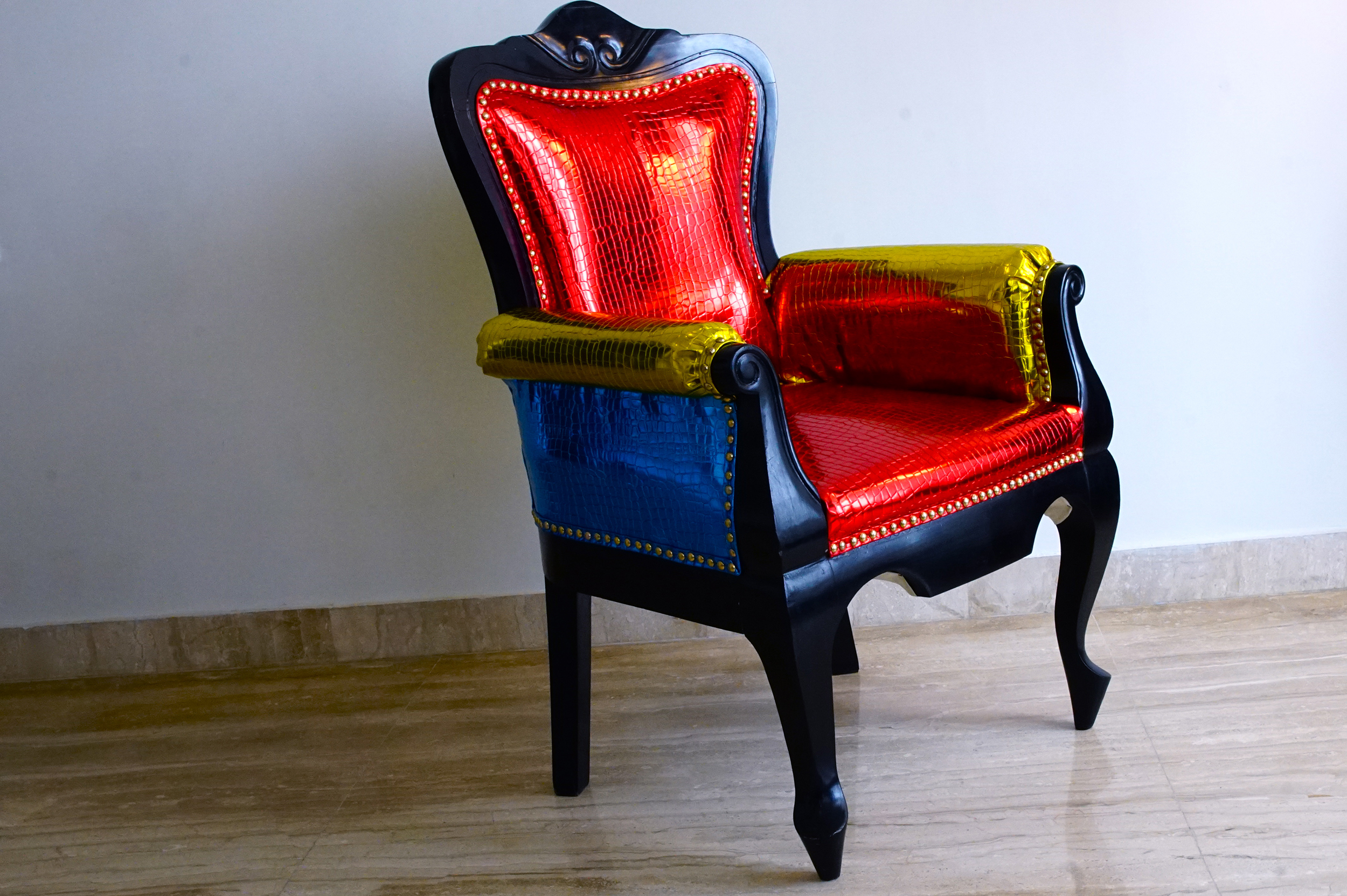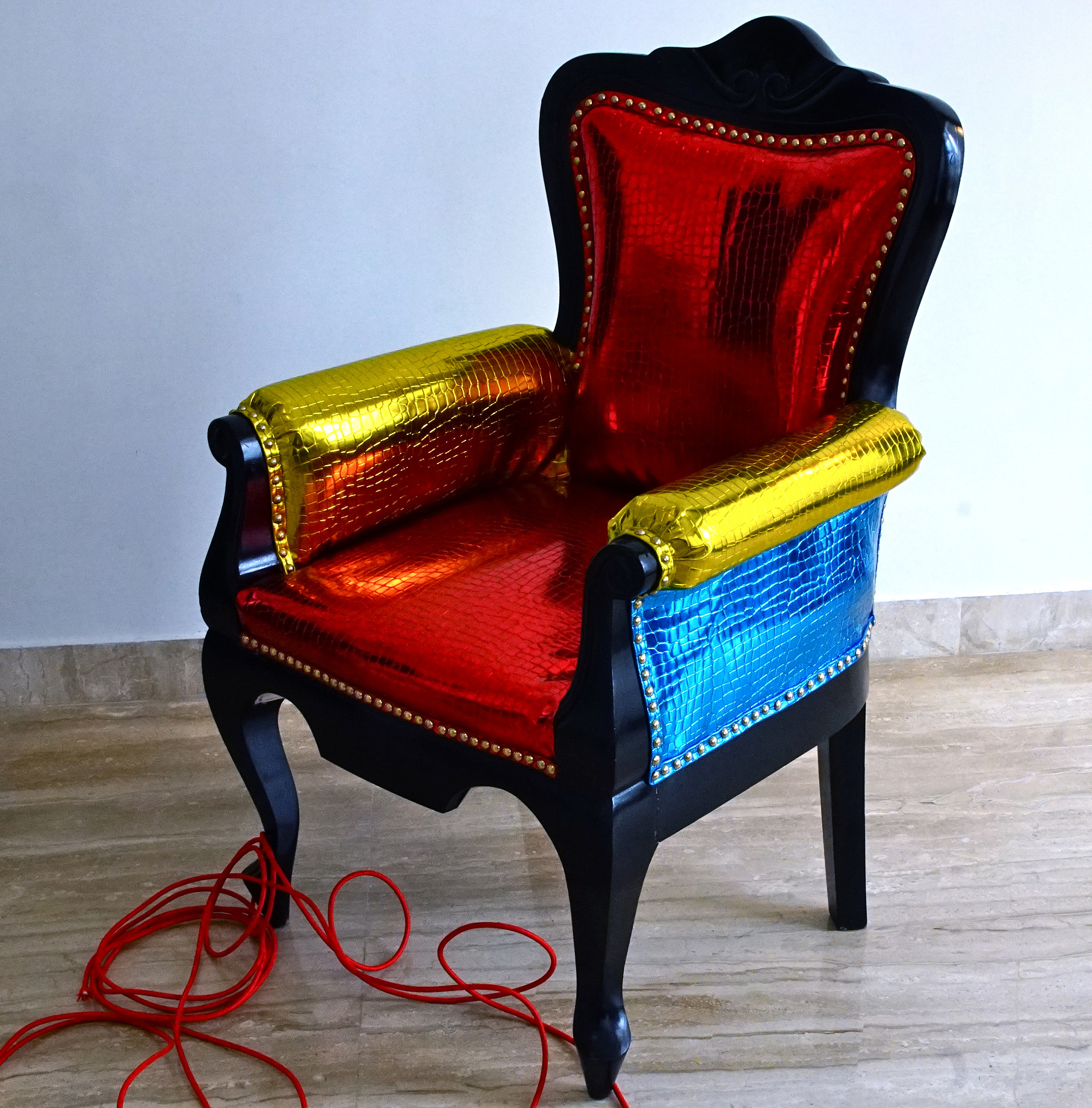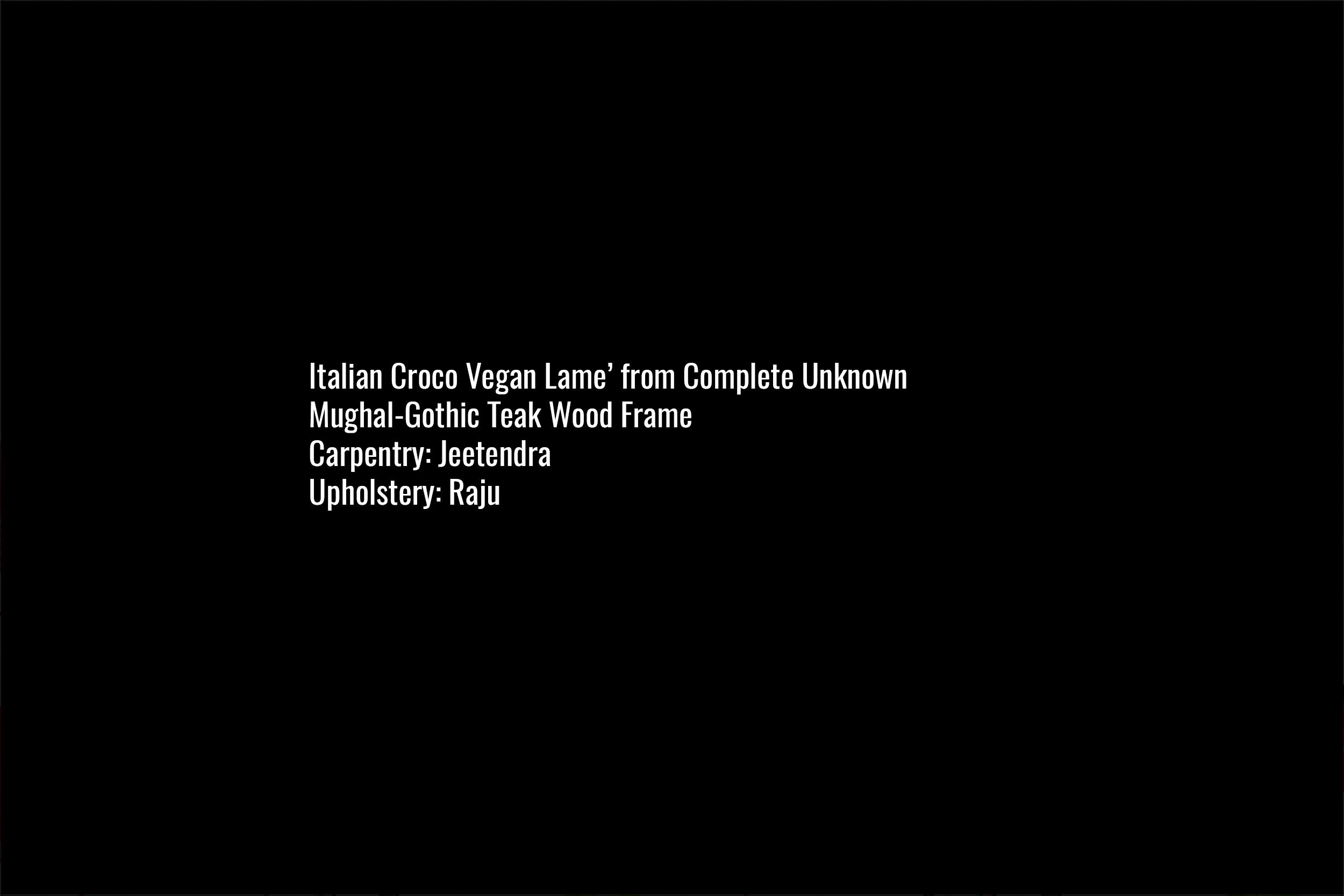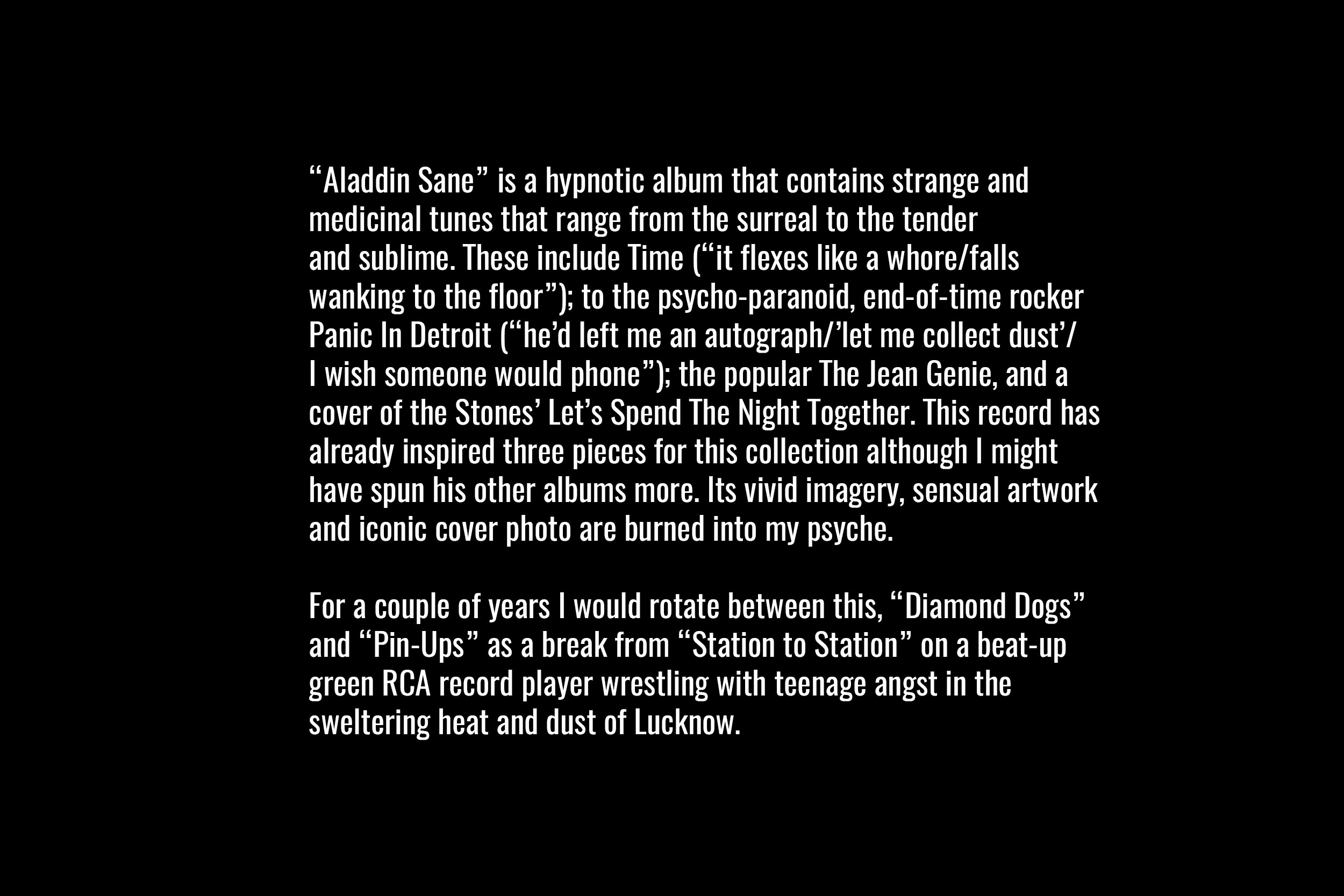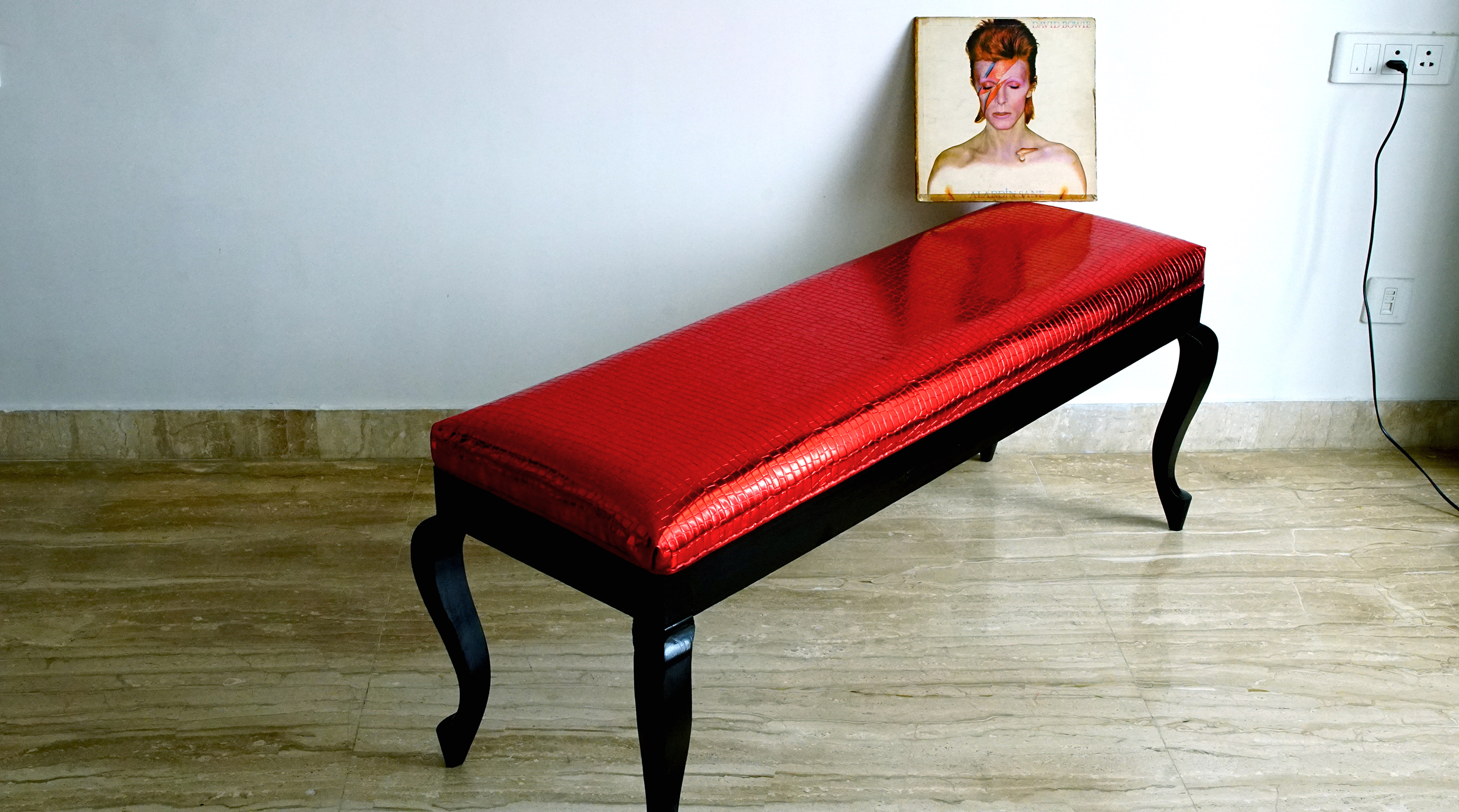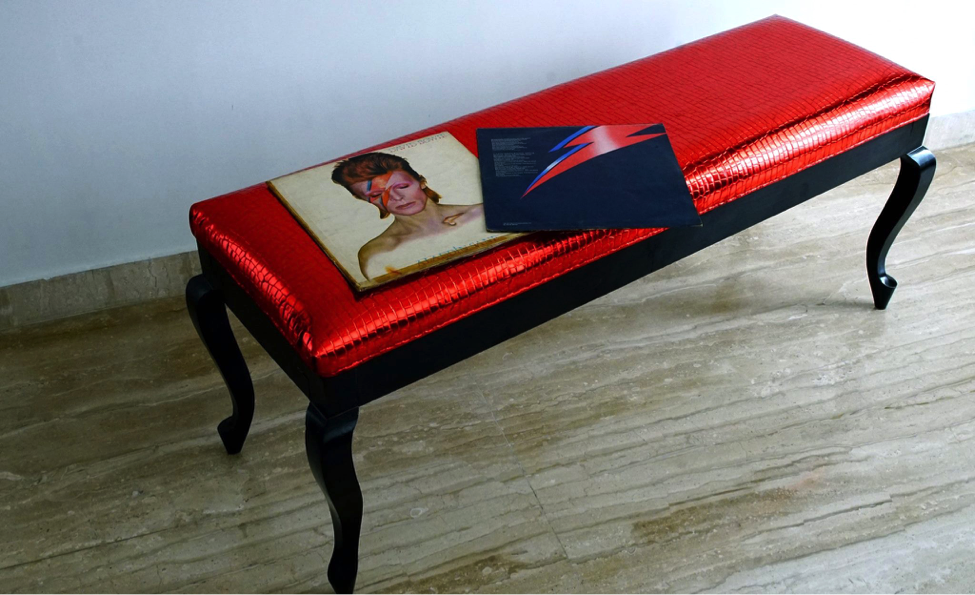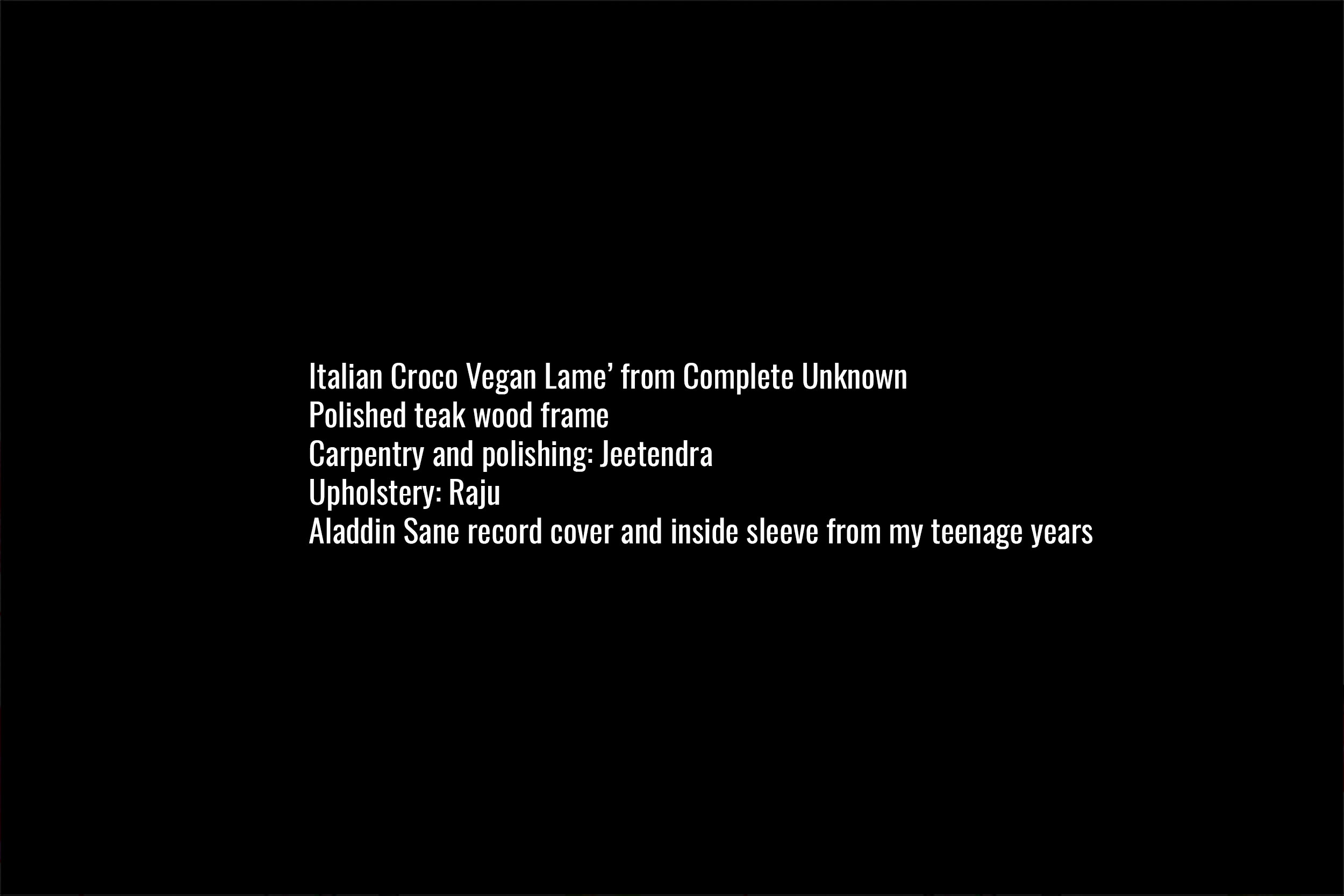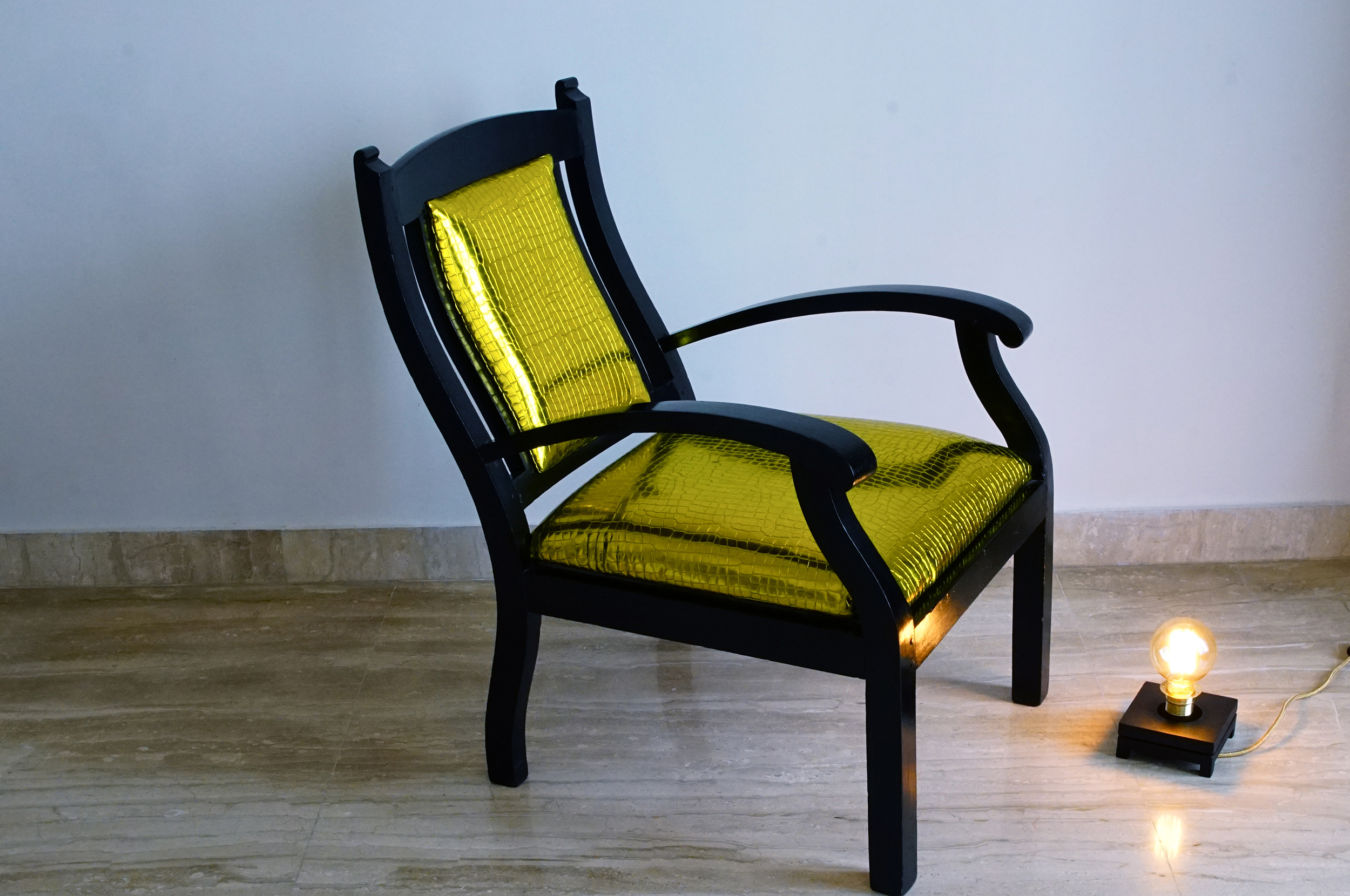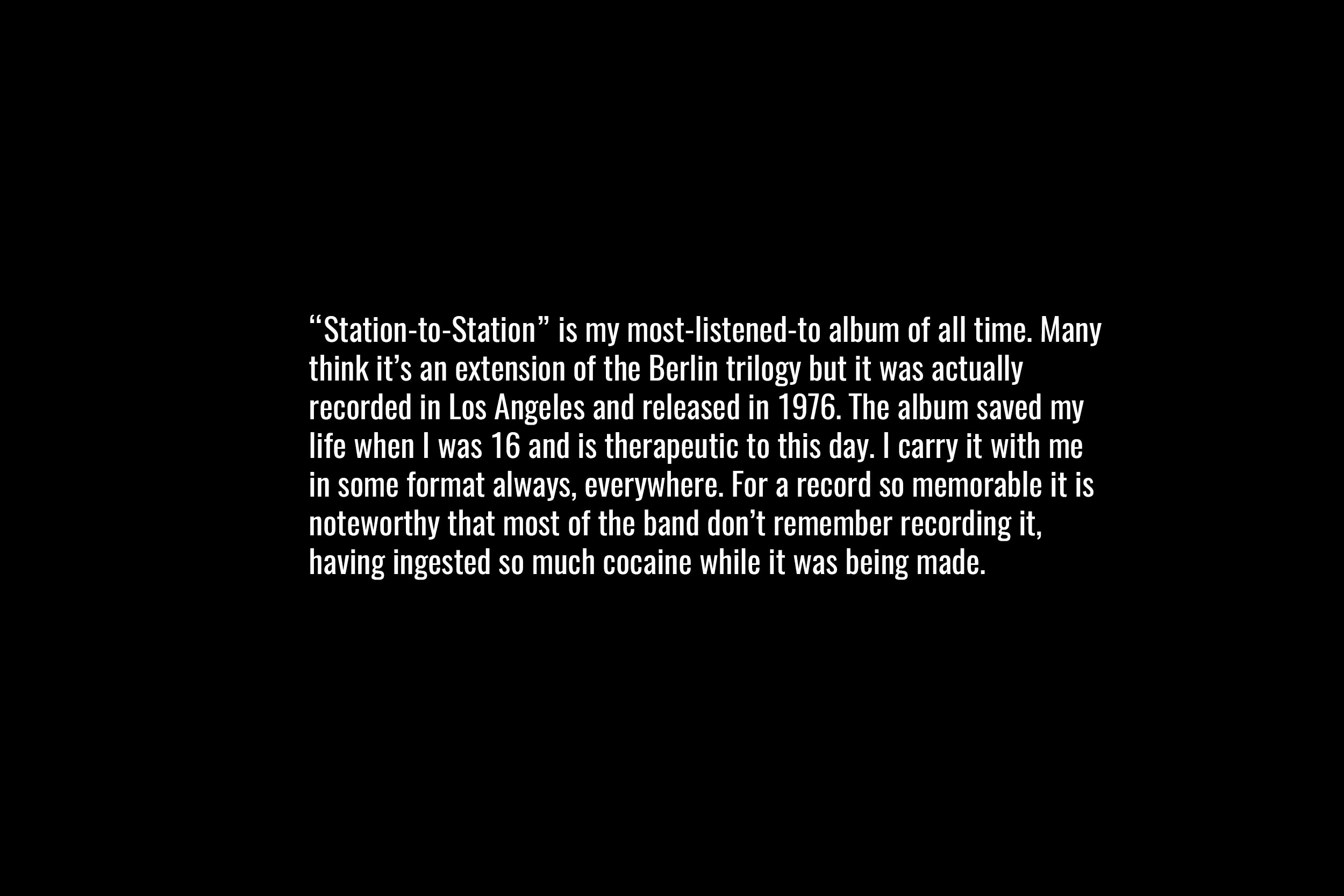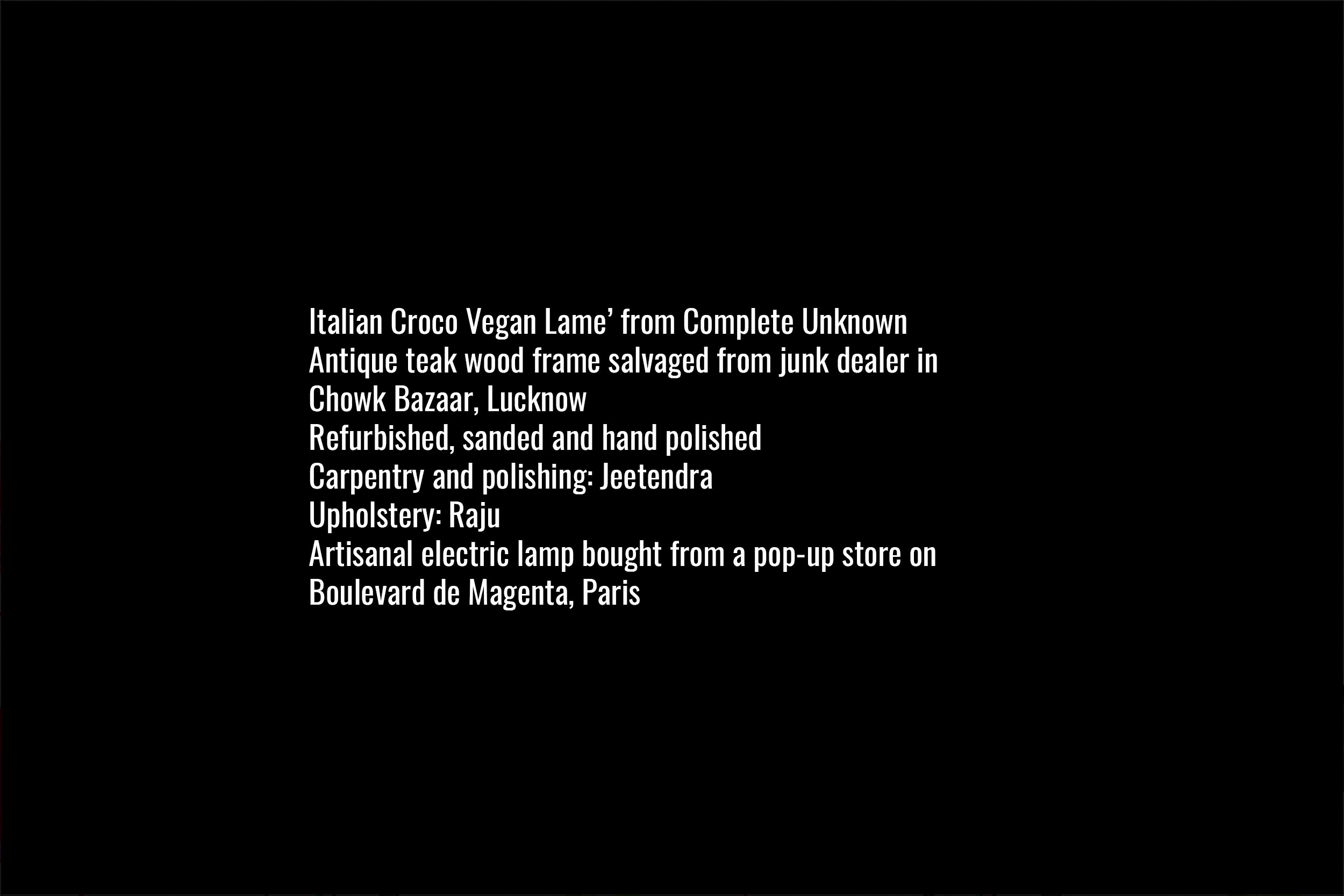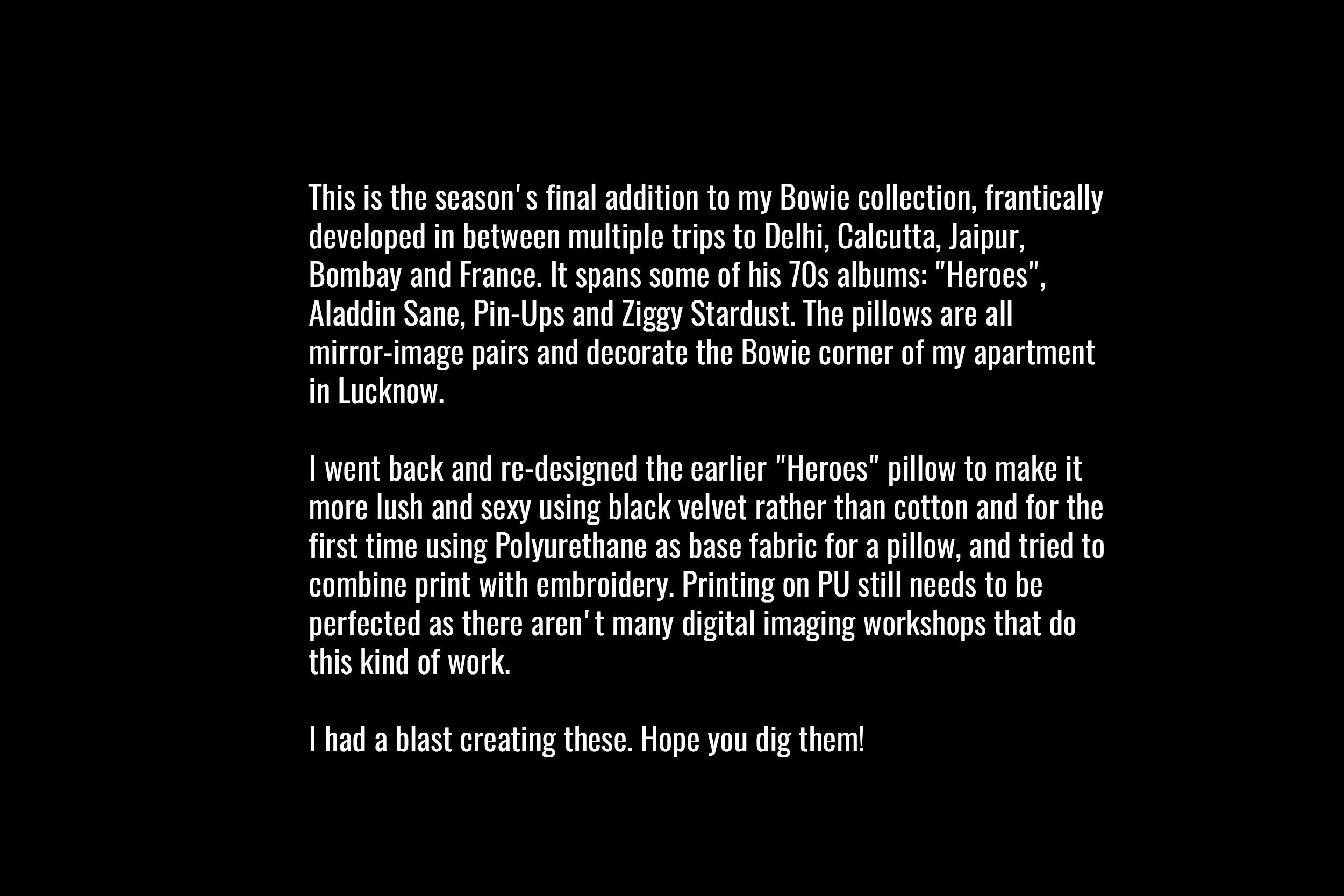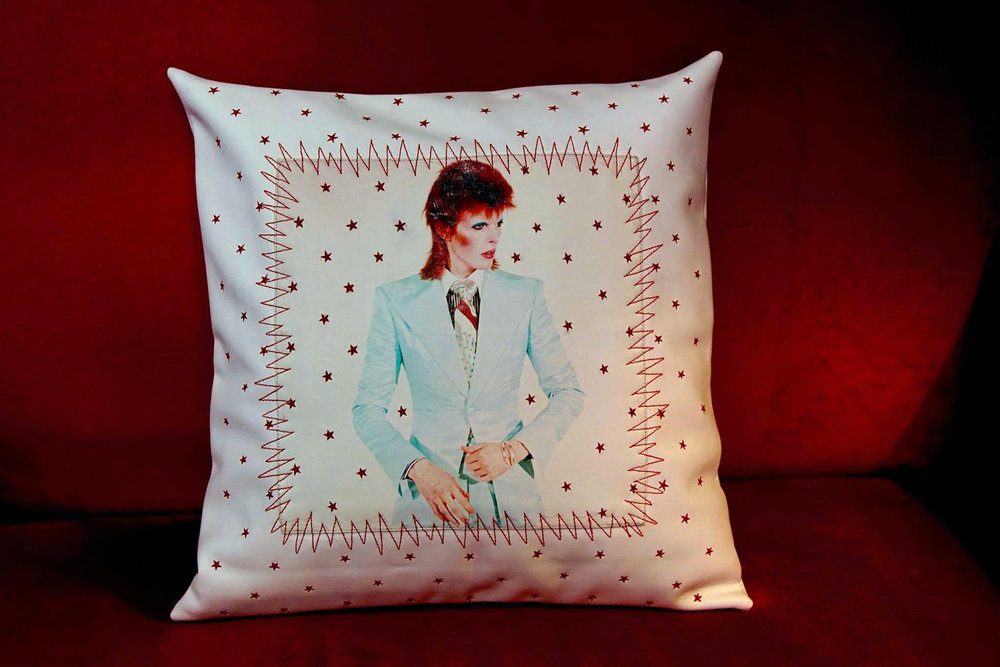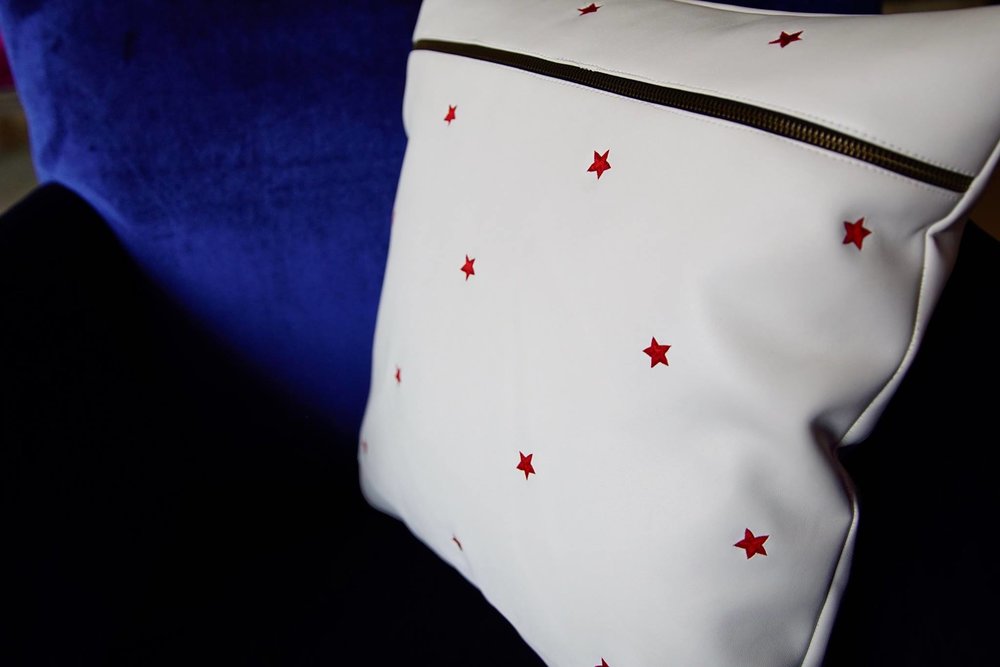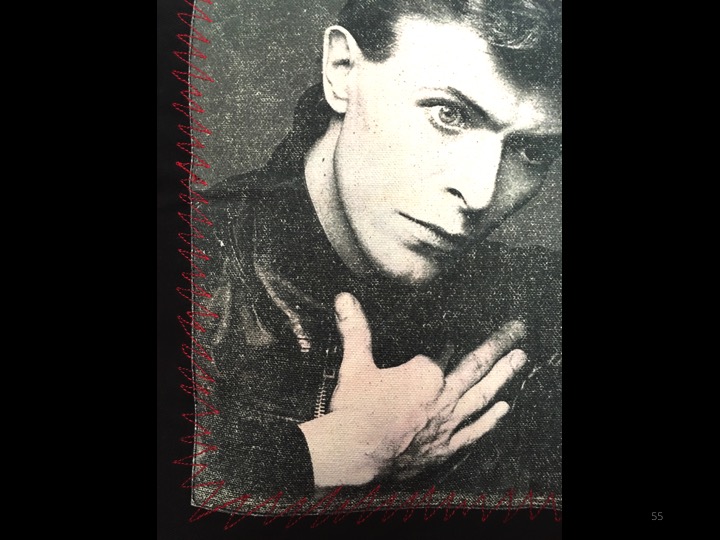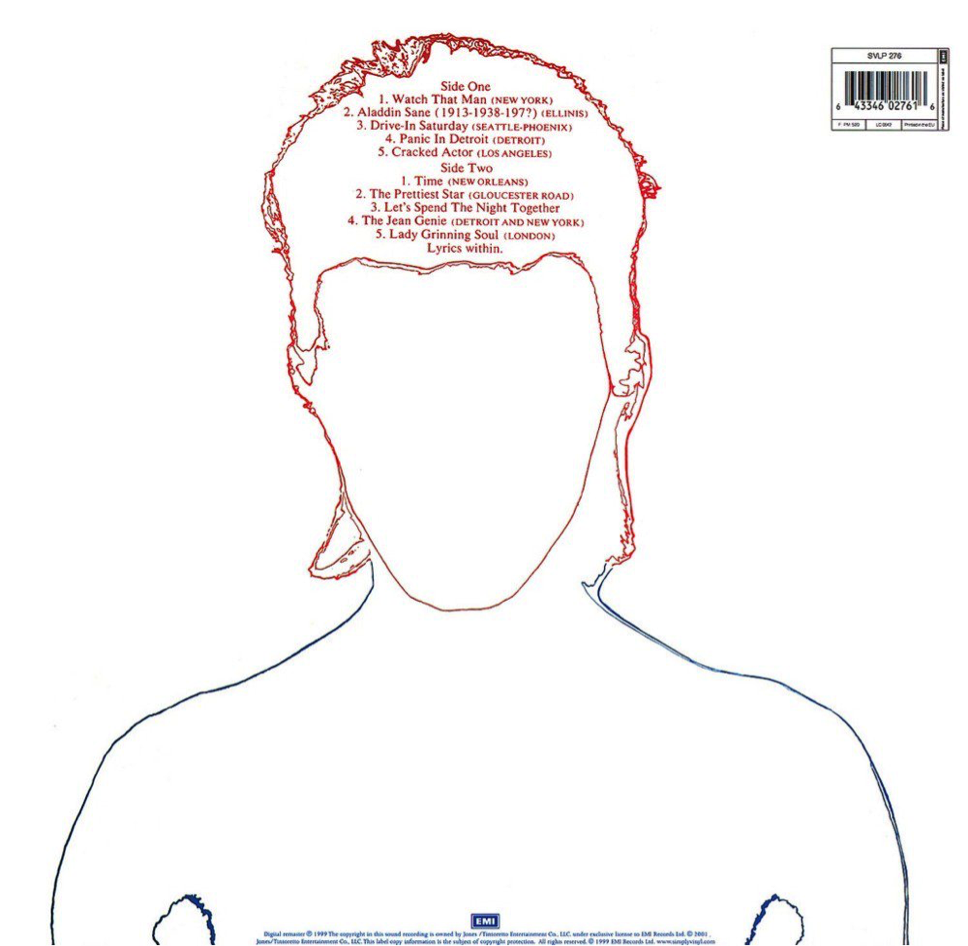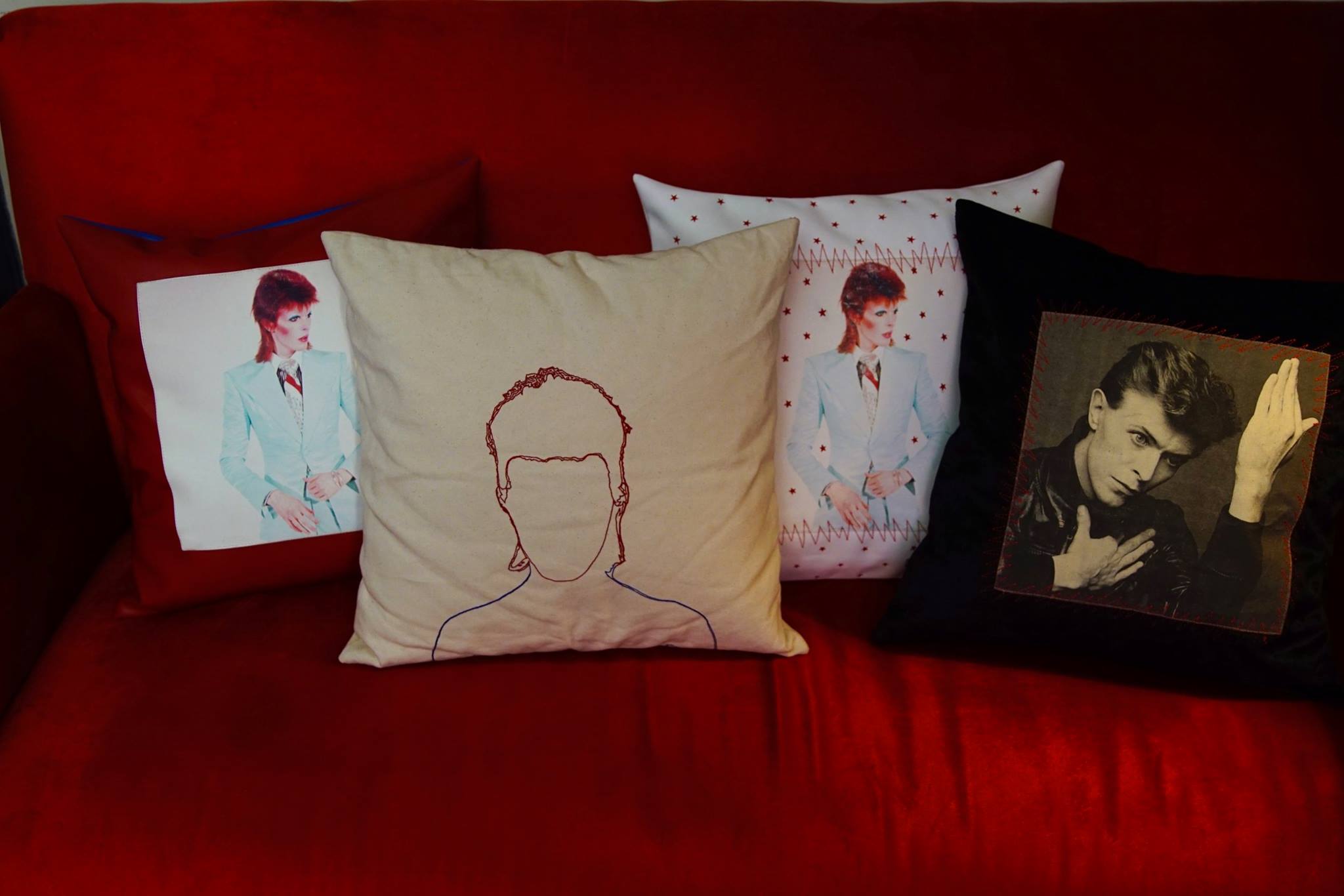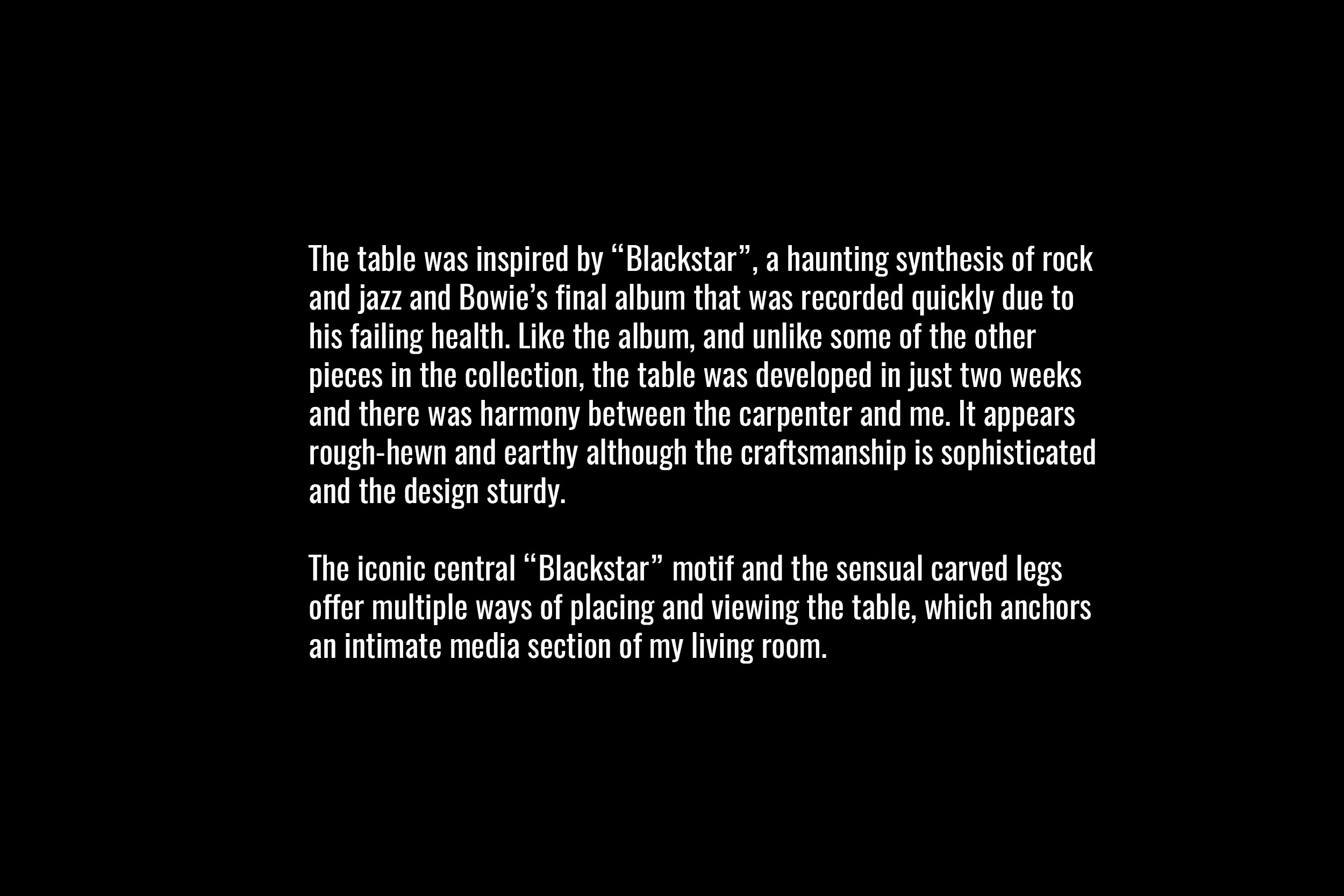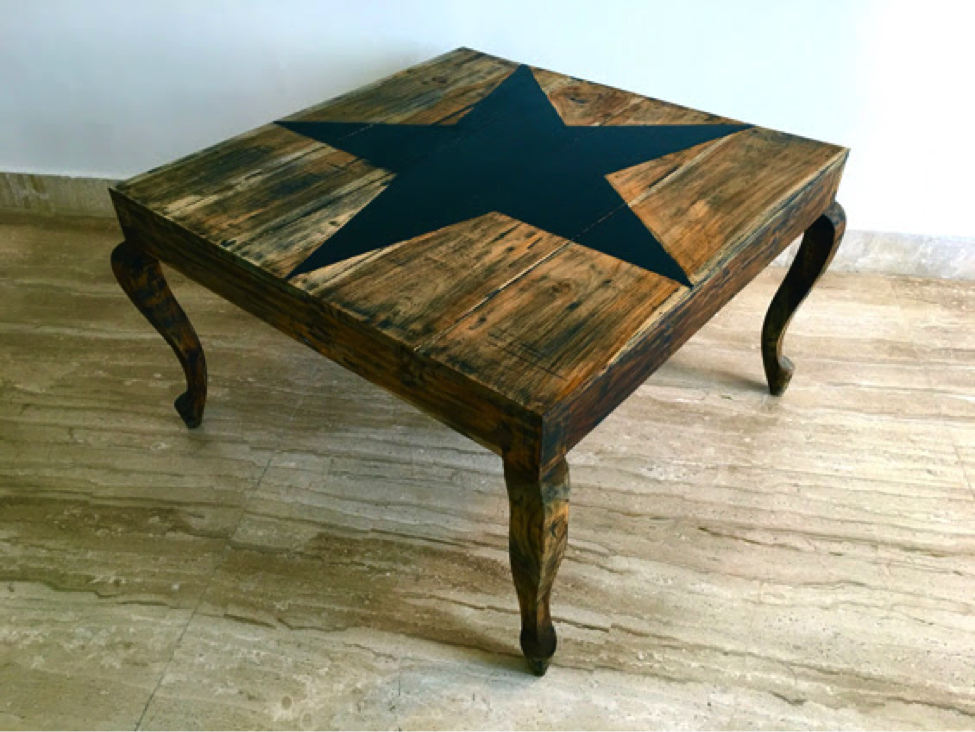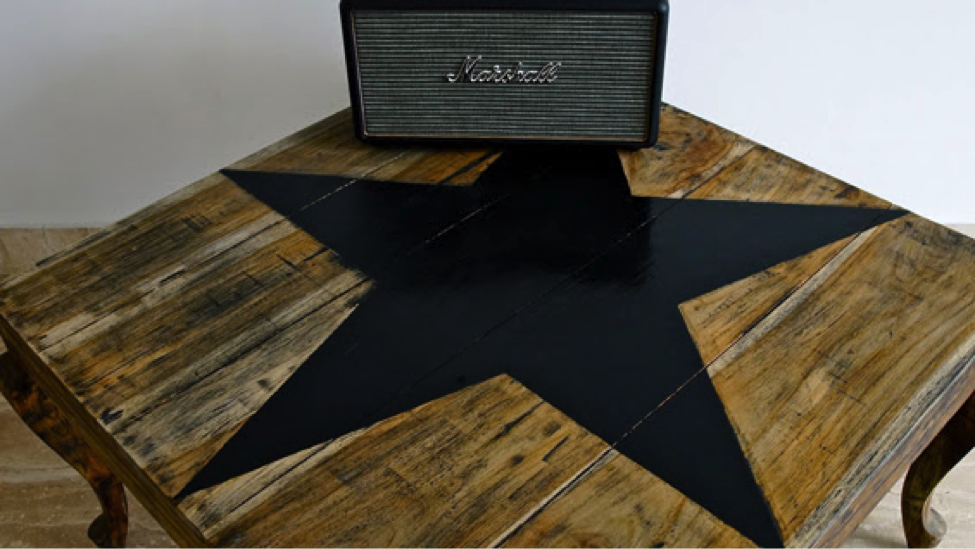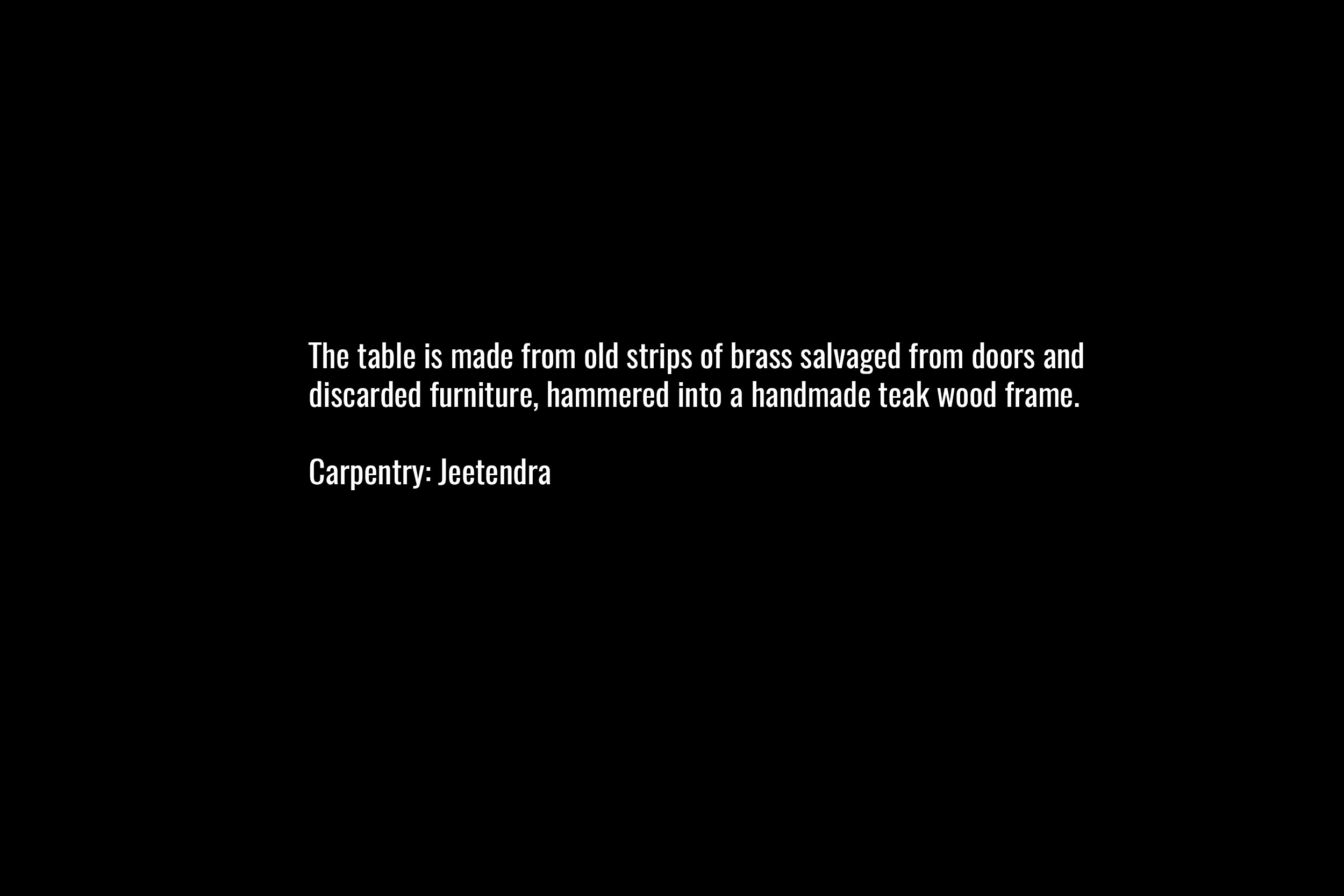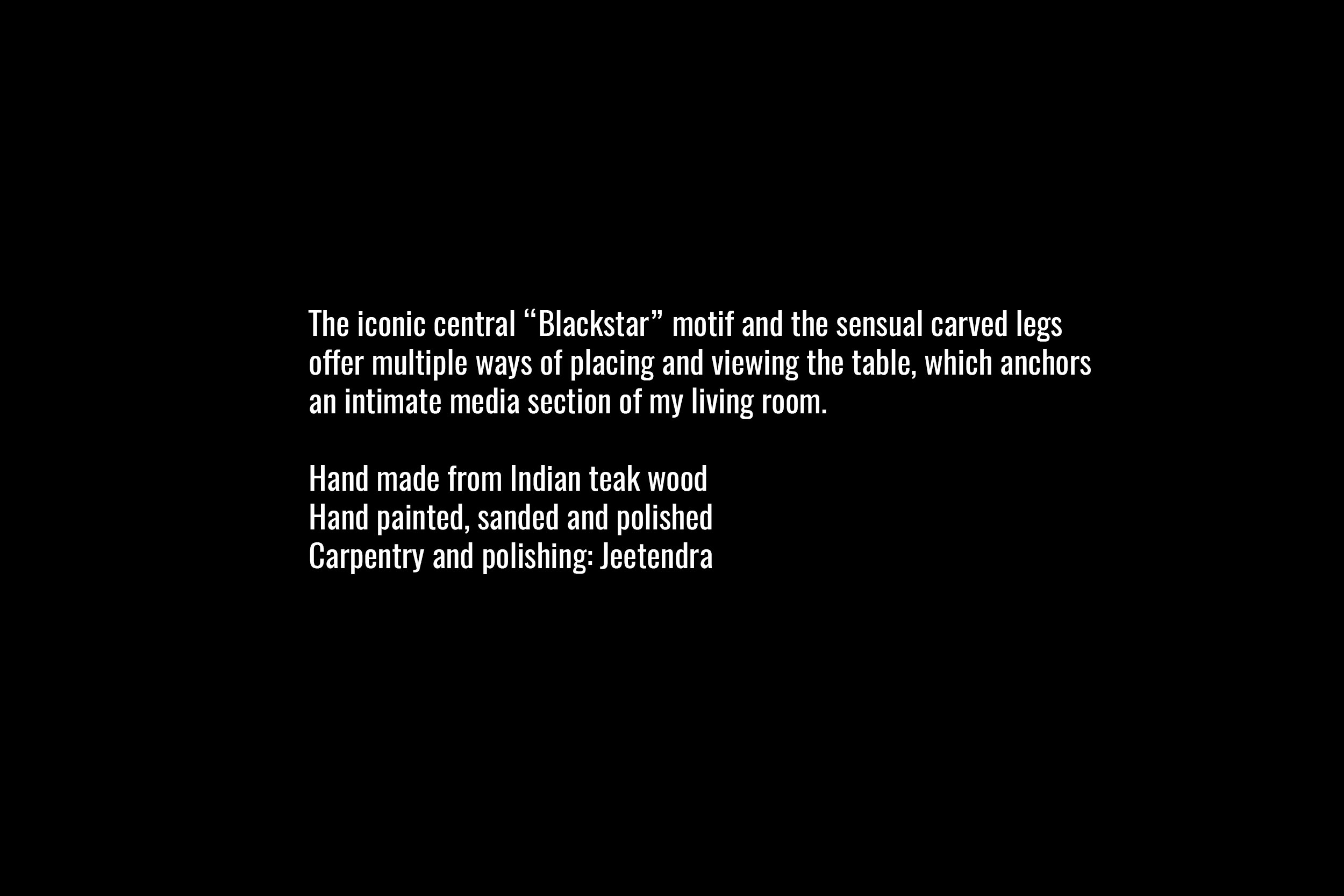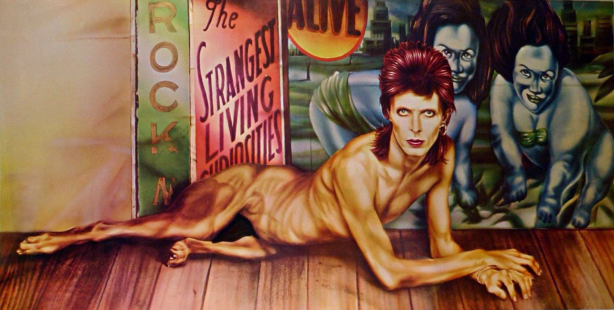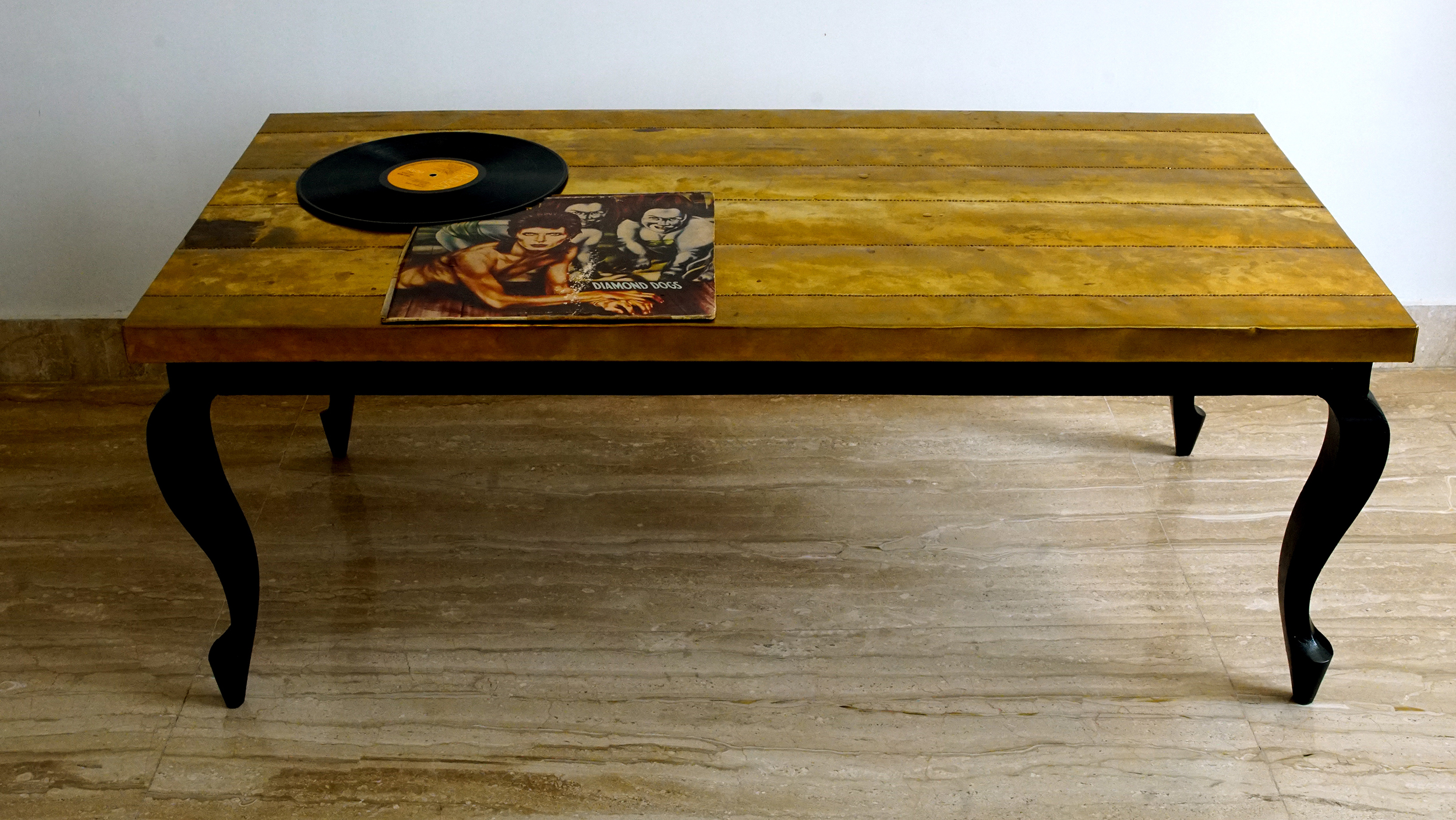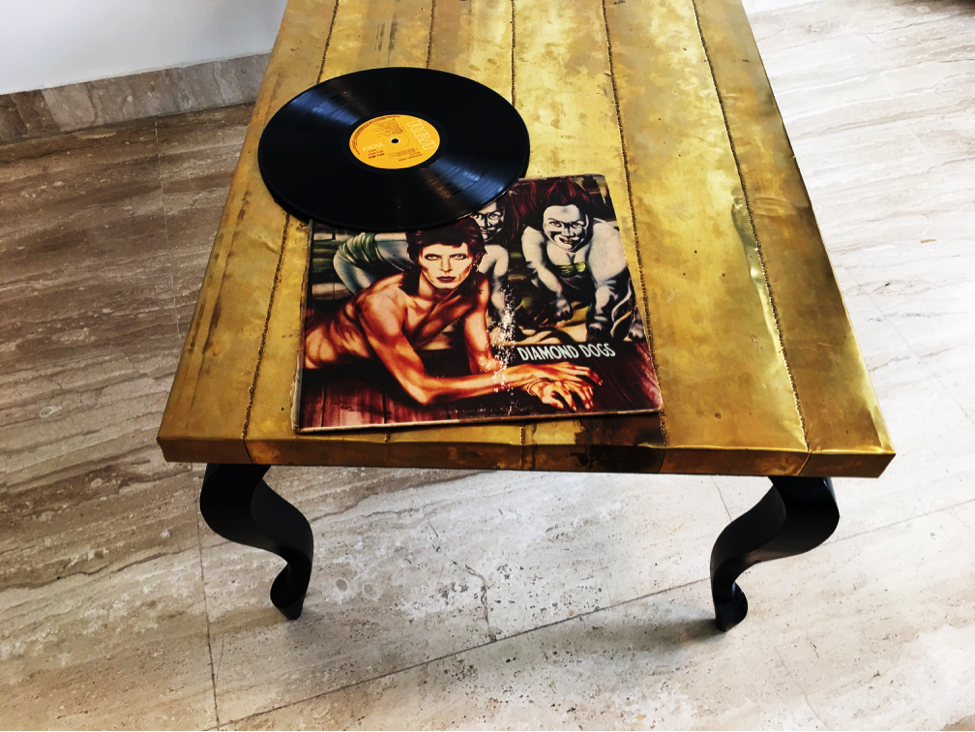THE DAVID BOWIE
FURNITURE COLLECTION
I transformed the sorrow of his death into Bowie-themed furniture
David Bowie was the drug I took to cope with teenage wilderness. I was in my hometown of Lucknow, India when he died this January, and it was here I first assimilated his music, many styles, and reincarnations. It’s not an exaggeration to say that Bowie profoundly impacted the course of my life. For a few days after he died, I walked around stunned by sorrow in my empty new apartment. I took out all his records and cassettes and spun them end-to-end in their original packaging- sweet scratchy vinyl, mystical thin cassette tape, some of it repaired with glue. During this frenzied nostalgia, Bowie returned to me yet again, with messianic force and brilliant clarity, and I responded with fervor to create something lasting as a tribute to him.
That is how my David Bowie Furniture Collection was conceived. I’ve been working on it in person and long-distance with a small team of unsuspecting collaborators I seduced into helping me. A year down the road many pieces are ready and some still in progress and although I spend only a few weeks in India these love-and-music-infused objects we created as an homage to Bowie remind me of how endlessly inspiring he was in life and now in death.
MY MAIN COLLABORATORS
Jeetendra is skinny, dark and stubborn. He is a carpenter from a village Bihar, one of the most backward and corrupt states in India. He came to Lucknow because there's more opportunity, less crime and yet the pace of life is slow. He can work when he wants to. There are days when carpentry takes a back seat and he can just lie on a cot outside his small workshop-cum-home and soak in the mild winter sun. He recently had a daughter. She is already six months old and on off-days, he likes to hoist her on his feet into the blue afternoon sky while his wife cooks the evening meal upstairs.
Raju's family has lived here for decades. He loves Bollywood and has a “platonic-romantic” relationship with a first cousin- his maternal uncle's only daughter. He is saving up to marry her next winter. Raju's father was a security guard for one of the “rajwaras’ (princely states) who have seen better days. He doesn't remember how he got into upholstery. An uncle repaired sofas for one of the families. The money wasn't terrible. Raju learned the craft from him, and how to cover ungainly wooden frames with flowered tapestry, stretching and stuffing and hammering a chair into existence.
Both of them have never ventured out of the state, and have no idea of David Bowie. It took a lot of convincing, cajoling and threatening to get them on board with a project that was way out of their comfort zone, required them to work with materials and colors they would never touch, and collaborate on what seemed to them a demented idea from a long-haired guy from “Amreeka.” They gave me a hard time but the results were gratifying. This collection very much reflects the artisanship and creativity that exists at a grass root level in every city and village of India.





